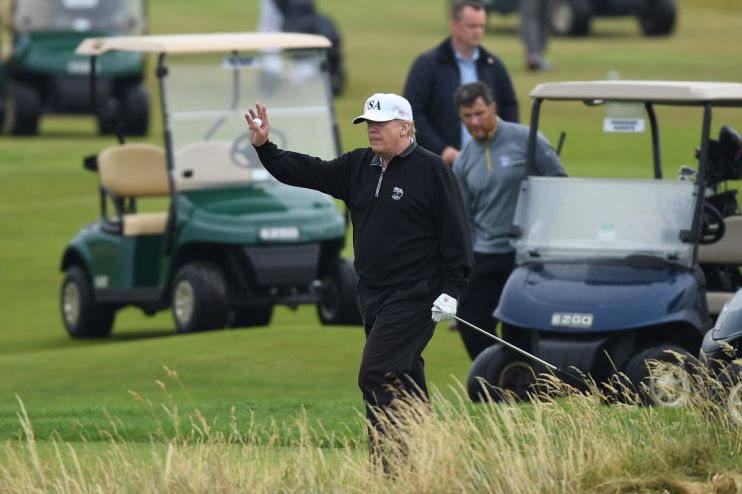Corruption in politics? It’s just business as usual

Robert Wood Johnson IV is not a name which necessarily springs even to the more well-informed lips.
“Woody”, as he is far better known, is the American ambassador to London — a post he assumed almost three years ago at the request of Donald Trump. His background is not in diplomacy: he is part of the family which created the Johnson & Johnson pharmaceutical giant, and is also a part-owner of the New York Jets.
Last week, it was reported that in 2018 the US President had requested his man in London to lobby the British government in an attempt to have the Open Championship, golf’s oldest fixture, held at Turnberry, the Scottish links conveniently owned by the Trump Organization (a claim Trump denies). Ambassador Johnson was reportedly warned by his deputy that this was deeply inappropriate; nevertheless, his excellency sought to raise the matter with David Mundell, then secretary of state for Scotland, whose view on propriety mirrored that of Johnson’s number two.
A grubby little episode, then — not foundation-shaking corruption, no more than a passing headline, and few would suggest that President Trump should be the acme for ethics tests.
But it does raise a wider question: is this kind of mid-level graft the inevitable conclusion of seeking our political leaders from the ranks of the very wealthy and successful in business?
A glance round the world suggests that it might be.
Silvio Berlusconi, who originally made is name in business, was Italy’s longest-serving prime minister since the Second World War, and beloved by many for his decisiveness, his tax-cutting, and his boisterous approach to foreign relations. Around him, though, there was always the whiff of impropriety, often stemming from his business career. Berlusconi owned three of Italy’s seven national TV channels, calling into question the freedom of the press; his government shortened prison terms for tax fraud; and he was suspected by some to have links with the Mafia.
This not simply a western phenomenon. In India, the flamboyant Vijay Mallya rode his business profile to become president of the Janata Party, and was twice elected to the upper house of the Indian parliament. He is now a fugitive in London, his extradition to India demanded to face charges of serious financial wrongdoing.
Voters are often susceptible to the appeal of businessmen as political leaders, thinking of them as decisive, straight-talking, and boasting a proven track record. Tycoons and entrepreneurs have none of the uncomfortable baggage of grubby compromises and shady alliances that a long association with politics inevitably brings. We seem to like the idea of an “outsider”, someone who will shake up “the establishment” — and the business world, where results can be measured and success is easy to spot, is an obvious place to look.
And it needn’t always end in tears. Michael Bloomberg, one of the richest men ever to face the ballot box in America, ended his long term as mayor of New York a respected figure with substantial levels of support — 64 per cent polled in 2014 called his years in office “mainly a success”. True, his recent presidential campaign was less triumphant, but that doesn’t detract from his past achievements.
Nevertheless, as mature, informed voters, we ought to be alive to the dangers. Business leaders are not baggage-free, and some of the skills they bring to politics may cause as much trouble as those common to career climbers of the proverbial greasy pole.
In politics, as well as in business, a good motto is always “caveat emptor”.
Main image credit: Getty